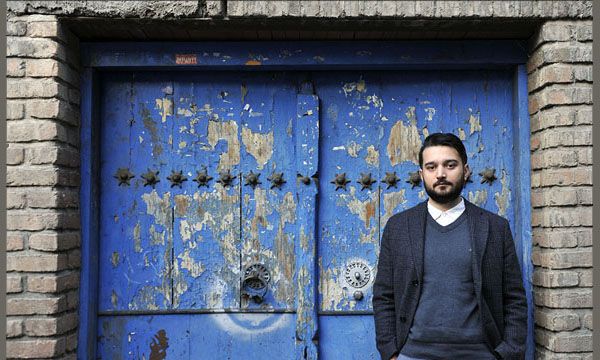
Aeen Norouzi (born 1990, Tehran) is a published young writer with outstanding achievements: he is the winner of the National Literary Olympiad in 2008, finalist of the 2013 Bushehr Literary Awards and Haft-Eqlim Award for the best short story collection of the year, and twice-winner of Tehran Story Award in 2014 and 2015. His debut novel, titled The Gastrointestinal System, was published by Cheshmeh in 2017, and his latest short story collection, Soft Soil, has just been released by the same publisher and received positive reviews. Some of Norouzi’s stories has been translated to English and appeared in magazines such as Transnational Literature (2018) and Parsagon.
Aeen Norouzi has accepted our invitation to the second edition of Parsagon’s Top Sevens, and shared his favorite reads in Persian and world literature with us. The interview was carried out in English.
PARSAGON: Which works of world literature/arts would you mark as the most influential on your life and career? How have they affected you? Please mention your top seven choices.
1. Anton Chekhov’s short stories
Reading Chekhov convinced me of having found something that could be approached to with no medium better than Literature; the stories in which everyday lives of ordinary people were to be perceived in their finest details.
I became assured that neither cinema nor any other medium of art could illustrate the encounter of man with the world like that; nothing but words.
2. Everyman by Philip Roth
Roth created a dauntless condensation of around seventy years of a man’s life with a breathtaking portrayal of boredom and illness and a lucid yet brilliant ending.
3. Raymond Carver’s short stories
What Carver pictures with those simple yet impressive sentences, has always stunned me.
4. A Very Easy Death by Simone de Beauvoir
This petite novella based on the last thirty days of Beauvoir’s mother’s life has made a profound impact on my perception of affection, pain and human conflicts.
5. John Cheever’s short stories
What Cheever illustrates with words would leave every writer envious of his mastery.
6. Buddenbrooks by Thomas Mann
It’s a true classic, a masterpiece indeed. I’ve never stopped being amazed by the fact that it was published when the author was only twenty-six years old.
7. The World Republic of Letters by Pascale Casanova
A must read for every writer, especially those who are struggling with serious obstacles in improving/maintaining their status in the global field of literature.
PARSAGON: In your opinion, which literary/artistic texts from Iran should the world read or see? Please mention your top seven choices and why you have chosen them.
1. Gavkhooni [گاوخونی], by Ja’far Modarres-Sadeghi
2. The Sky, Full of Clouds [آسمان، کیپ ابر], by Mahmoud Hosseinizad
3. The Horn [شاخ], by Peyman Hooshmandzadeh
4. White Red [سرخ سفید], by Mehdi Yazdani Khorram
5. Scorpion on Andimeshk Railway Stairs [عقرب روی پلههای راهآهن اندیمشک], by Hossein Morteza’ean Abkenar
6. Life Goes on According to Your Will [زندگی مطابق خواسته تو پیش میرود], by Amirhossein Khorshidfar
7. Lessons by Father [تربیتهای پدر], by Mohammad Tolouei
Evidently there are certain Iranian books, eminent enough to be read by the world, of which plenty have already been translated into different languages, but as a young writer I would personally prefer the world to become more acquainted with our contemporary works – not only due to their literary nobilityو but also their honesty in illustrating a vivid yet true portray of today’s Iran.
And finally, what do you think literature can do (or should do) in times of global crises, such as pandemics?
The alleged duty of literature and the attributed providence of art, in my opinion, is illusory and insubstantial; hence Literature ought not assume any kind of responsibility in days of global crises like the current pandemic.
Given the fact that certain features of everyday life have been restricted during these days, people would “hopefully” dedicate a small amount of their spare time to reading and put their phones aside for only a few minutes. That, I would consider as an adequate “success” for the literature in our time.
Photo: (c) Gata Ziatabari - Honaronline


Leave a Reply